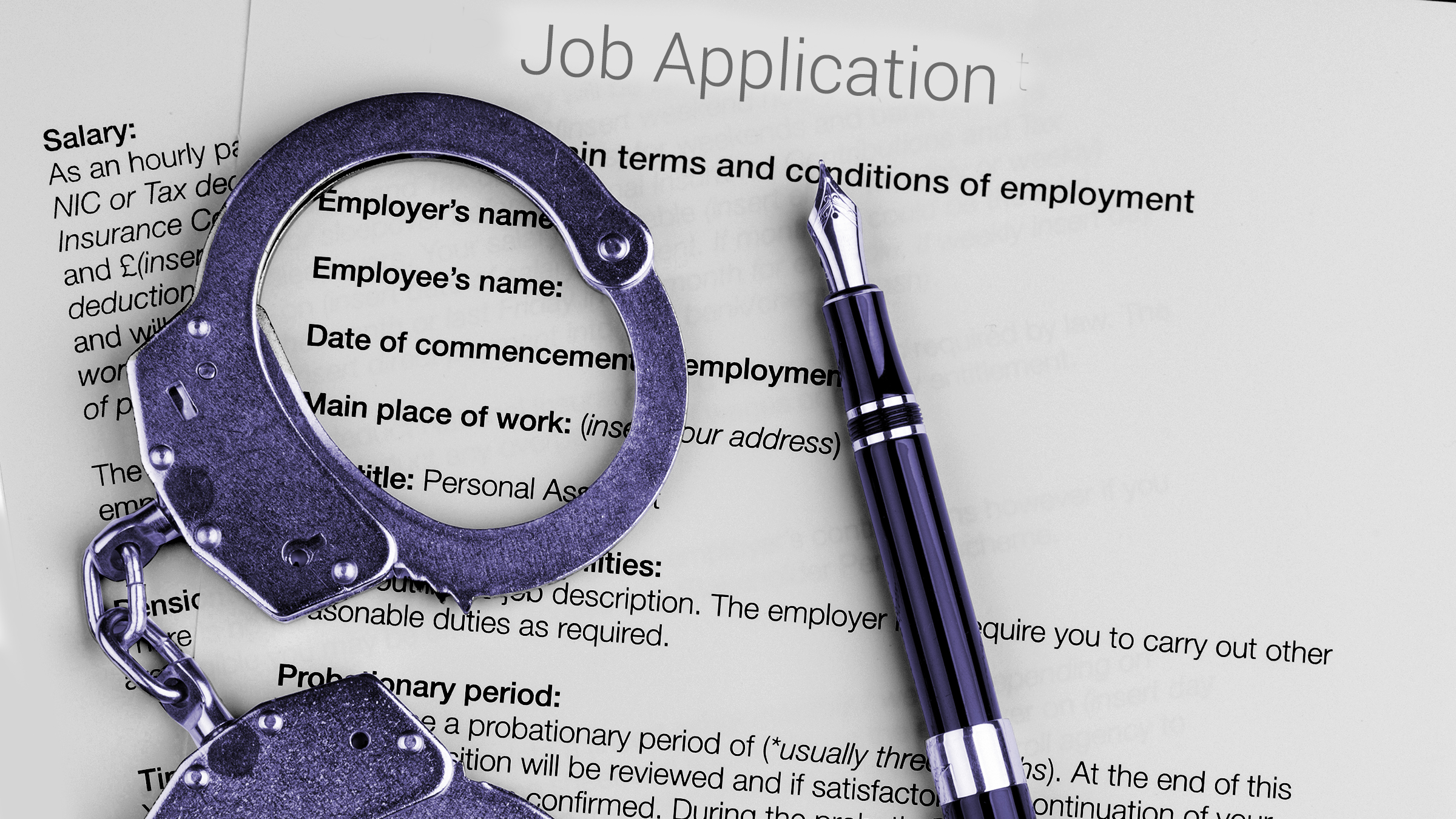ARGUING YES
Senior Staff Attorney at the National Employment Law Project
ARGUING NO

Executive Vice President of Criminal Justice at Arnold Ventures
MODERATOR
Host and Moderator-in-Chief
This week:
- New episode: Should ex-offenders disclose criminal history during the job search?
- A look at the number of unemployed former offenders who don’t find a job one year after their release from incarceration
- Your Sunday reading list
More than 70 million Americans have a criminal record — 20 million of them include a felony conviction. In many jurisdictions, they are required to “check the box,” revealing their criminal history in the initial stage of the job application process, often leading to rejection based on their answer. As part of Second Chance Month, we debate one proposed mechanism to help bring those with a criminal history into the workforce.
The Two Sides:
A bipartisan movement called “Ban the Box” asks that state and local governments, as well as private businesses, reconsider whether it is better to leave the criminal history question until later in the hiring process before the job offer. These “Ban the Box” advocates say this correction is essential to productive re-entry into the workforce and is good for business. Those against “Ban the Box” policies say it’s responsible for businesses to keep their interests, employees, and customers safe when making hiring decisions and that more importantly, “Ban the Box” policies don’t work and that removing them leads to unintended consequences, including more discrimination in the hiring process.
The Numbers Behind “Ban the Box”:
- While there is no federal “Ban the Box” law, 30 states, including Washington D.C, and 150 counties and cities like Austin, New York City, and San Francisco have some form of “Ban the Box” legislation.
- 13 states have extended their “Ban the Box” laws to private employers.
- Research from the National Bureau of Economic Research showed that 39% of businesses are willing to work with individuals with a criminal record, which rises to over 50% when offered other incentives or conditions.
- One study from the Quarterly Journal of Economics found that before “Ban the Box” was implemented in New York and New Jersey, white applicants to employers with the box received 7% more callbacks than similar black applicants. However, “Ban the Box” increased this gap to 43%.
So would “Ban the Box” policies help former offenders or hurt them despite the good intentions of the policy? Listen to this debate now on Apple Podcasts, Spotify, and YouTube and let us know what you think.
DEBATING THE DATA
Would “Banning the Box” make it easier for former offenders to get a job?

POINT/COUNTERPOINT
Ban the Box: Should We Banish the Criminal History Check Box from Job Applications?
YES: Beth Avery
“‘Ban the Box’ is… a moral imperative. If an employer is going to discriminate, it’s most likely to happen at the first interaction, at the submission of a job application. It remains patently unfair to screen out people at step one. I don’t see how we move employers past bias, how we interrupt the unfair stereotypes if we allow employers to continue to freely and unfairly screen out everyone with a record upfront. Let’s have the employer choose the applicant of their choice based on their qualifications, their resume, and interview, and then make a decision. It’s allowing employers to… consider a job applicant as more than just their record, more than just the checkbox.”
NO: Jennifer Doleac
“‘Ban the Box’ has reduced employment for young black men with limited education… and tries to address unfairness by removing information that we wish employers did not care about… Unfortunately, employers still want to know if an applicant has a criminal record, but now they can’t ask upfront. This puts many in a situation where they have a strong incentive to guess which applicants have a record. In other words, ‘Ban the Box’ has broadened discrimination rather than reducing it… ‘Ban the Box’ policies should be abandoned.”
WEEKLY POINTS OF VIEW
Ian Bremmer | April 5, 2024
Project Syndicate
Watch Ian’s debate on whether China’s power has peaked
The Assault on American Jews Is Getting Worse
Bret Stephens | April 16, 2024
The New York Times
Watch Bret’s debate on whether anti-Zionism is the new anti-Semitism
One woman’s story of agony shows why childhood immunizations are so crucial
Leana Wen | April 8, 2024
The Washington Post
Watch Leana’s debate on whether COVID booster shots are unethical
The Four-Day Work Week Is Decades Away
Allison Schrager | April 9, 2024
Bloomberg
Watch Allison’s debate on whether we should address the gender wage gap


















